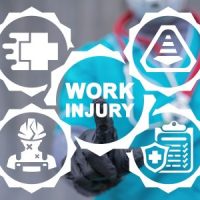Overexertion Symptoms To Look Out For

If you have a physically demanding job or one that requires repetitive movements, you are at a significant risk of suffering overexertion. Overexertion occurs when the body is pushed beyond its limits. According to the National Safety Council, overexertion is among the leading causes of workplace injuries. It is crucial that you are able to recognize the signs and symptoms of overexertion. That way, you can prevent serious health issues that can affect your life in many ways. In this article, we explore some of the common symptoms of overexertion.
Causes of Overexertion
Before delving into the symptoms of overexertion, it is crucial to first understand what can cause overexertion. As mentioned, overexertion happens when you push your body beyond its limits. Overexertion at work can be caused by several factors. The following are some of the common causes of overexertion at work;
- Physically demanding tasks: Heavy lifting, pulling, pushing, and other physically demanding tasks increase the risk of overexertion.
- Repetitive movements: When you repeatedly move a muscle or joint over a long period, it can result in overexertion. Activities in workplaces that require repetitive movements and that can cause overexertion include typing, working on an assembly line, retail checkout, food preparation, and cleaning.
- Improper technique: Doing tasks incorrectly can result in overexertion. Examples of improper techniques that can lead to overexertion include improper lifting, standing in awkward positions, and sitting with poor posture.
- Sudden body movements: Abrupt movements such as bending, twisting, throwing, pushing, or pulling can lead to overexertion injuries.
- Lack of physical fitness: Physically unfit employees may struggle to perform job duties that require physical exertion, increasing the risk of overexertion injuries.
Symptoms of Overexertion To Watch Out For
It is crucial that you are able to recognize the symptoms of overexertion early on. That way, you can prevent serious health issues and maintain productivity. The following are some of the symptoms to watch out for that may indicate overexertion;
Pain
One of the common signs of overexertion is pain. You may experience muscle or joint pain. The pain might feel achy or sharp. You may also experience a tingling, burning, pinching, or throbbing sensation. It is vital that you don’t ignore pain. If you experience pain, stop what you are doing and take a break. If the pain persists, ensure you see a doctor.
Fatigue
Experiencing a significant decrease in energy levels or feeling unusually tired could indicate overexertion. When you feel fatigued, allow yourself to rest and recover. Do not force yourself to keep working when you feel fatigued.
Difficulty Breathing
In some cases, overexertion can result in difficulty breathing. This can happen during physical exertion or if you are in a place with poor ventilation.
Inflammation or Swelling
Swelling or inflammation in the muscles or joints may be a sign of overexertion. You may also notice that the affected area is tender, warm, or red. If inflammation or swelling worsens, ensure you seek medical attention.
Is Overexertion Covered Under Workers’ Compensation?
Workers’ compensation insurance provides financial benefits to employees who suffer work-related injuries. Overexertion injuries are covered by workers’ compensation insurance. Employees who suffer a work-related overexertion injury can recover compensation for medical expenses, lost wages, and other costs related to their injury.
Legal Help Is Available
If you’ve suffered a work-related overexertion injury, contact our Vermont workers’ compensation attorney at Sluka Law PLC to schedule a consultation.
Source:
injuryfacts.nsc.org/work/work-overview/top-work-related-injury-causes/
